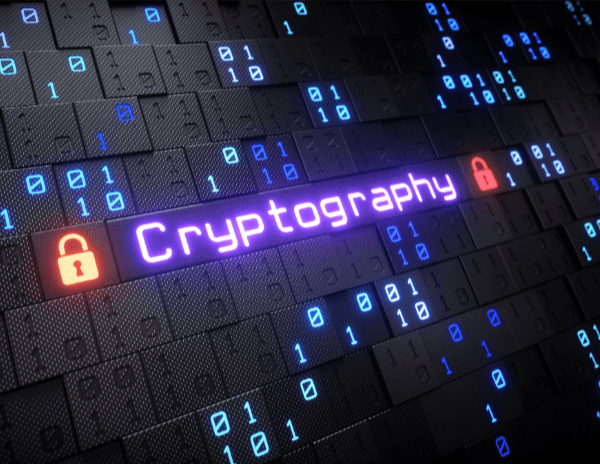Nowadays, the protection of sensitive data is an increasingly relevant concern, especially in a world that is increasingly connected and dependent on technology. The increased use of mobile devices, applications and online platforms has created new challenges for guaranteeing data privacy and security.
To meet these challenges, one technique that has been widely used is the process of encoding information, known as data encryption, the aim of which is to make information unreadable to anyone who does not have the decryption key.
In this article, we will explore the details of this process, its importance and how it is used to protect data against privacy breaches, cyber attacks and other threats.
What is data encryption?
Encryption, also known as data encryption, is present in the daily lives of all internet users. From WhatsApp messages to bank applications, government websites and even online stores.
Practically everything you do online has some level of encryption. After all, this is one of the most important tools for protecting your privacy, your bank details and even your identity.
In short, data encryption is a way of making your information unreadable in order to transport it to another recipient and then make it readable again. Thus, anyone who intercepts this content on the way will not be able to access it. The data is only available to the final recipient, who may be a person or institution.
In addition, encryption ensures that the message is not altered, protecting your information from third-party interference.
How does data encryption work?
As you have seen, encryption consists of transforming certain information into unreadable text so that it can be transported over the network. This process results in a ciphertext, which appears random and can only be read using an encrypted key.
The key is made up of a set of mathematical values shared by both the sender and the recipient. This way, the recipient can decipher the message and make it readable again. To do this, there are two types of data encryption: symmetric and asymmetric, which we’ll explain below.
Types of encryption
There are two main types of encryption: symmetric and asymmetric.
Symmetric
In this case, also called private key encryption, the same key is used to encrypt and decrypt information. This is a faster option, but it requires the sender to share the key with the recipient, which increases the chances of interception by a third party, such as a hacker.
Asymmetric
Asymmetric encryption works with two keys, one public and one private. In this process, a symmetric algorithm encrypts the data, while an asymmetric algorithm is used to decrypt it.
This technology is mainly used by companies that manage a large amount of encrypted data, as it allows for greater security in the process. In addition, asymmetric data encryption allows you to control who the users are who access that information, which is not the case with symmetric.
What is the difference between cryptography and encryption?
Cryptography and encryption are terms that are sometimes used interchangeably, but have different meanings.
Cryptography is the scientific and technical study of how secrets can be secured. It is a discipline that includes techniques to guarantee the confidentiality, integrity and authenticity of information. It is used to protect sensitive data, such as financial and health information, and to guarantee the security of communications, such as email addresses and instant messages.
While cryptography is a broader discipline, encryption is a specific technique within cryptography. Encryption is the process of scrambling information so that it is unreadable to anyone who does not possess the decryption key. Encryption is used to protect sensitive data, such as financial information, personal data and confidential communications.
In short, cryptography is the scientific and technical discipline of information security, while encryption is a specific technique used to protect this information by encoding it in such a way that it can only be read by authorized persons.
How to exploit data encryption?
1 – Encrypt when “in transit”
Encryption of data “in transit” is used when we send data to other devices, whether by messages, emails or website forms. By using encryption in these cases, we are preventing our messages from being intercepted by third parties.
2 – Encrypt when “at rest”
Encryption “at rest” means protecting files stored on your own device, such as your computer, an external disk or a USB flash drive. Nowadays, you can use data encryption on the main operating systems on the market, using fairly simple software. When you do this, you enter a password, which will be used to decrypt your information.
Types of encryption applied in various sectors
From our explanation, you’ve probably realized that encryption is simpler than it sounds, right? The process involves complex operations, but it is becoming increasingly accessible and is being used in a wide variety of sectors. Below, we’ve listed some of the segments that make the most use of this technology. Check them out!
1 – Storing information about the project
All companies need to keep new projects and products in development confidential. Exposing this information can put years of corporate strategy at risk. That’s why encryption can be an important way of protecting your business data from attack.
We are not saying that the competition will directly hack into your systems. But it could happen that a hacker attacks your company and steals or tries to sell that information to other companies. This type of action is known as corporate espionage and it brings a lot of damage to the attacked company.
In addition, an employee can leak this data when changing jobs, for example. So it’s important to pay close attention to the security of your projects to ensure the success of your business.
2 – Communication between teams
Another situation that can put your company at risk is the interception of employee conversations. Even if your projects are well protected, message exchanges can reveal a lot of strategic information about a company. Especially with the adoption of the home office, which has become more common during the Covid-19 pandemic.
That’s why encryption is essential to ensure that your employees’ privacy and company data are safe.
3 – Communication between the application and the data server
In many situations, an app needs an internet connection in order to connect to the server via the cloud. This type of technology has democratized access to various software and allowed information to be consulted anywhere. But keeping these applications secure is yet another challenge.
In these situations, data encryption protects your customers’ information and also keeps the system working properly, with less risk of attacks.
4 – User login
Likewise, encryption is very important for securely preserving the login and password of users of a system, application or website.
The technology works in two ways: firstly, it ensures the customer’s privacy by encrypting communication between the app and the login service; at the same time, it helps the company to store this data securely.
5 – Online payments
Finally, we come to one of the most widely used sectors, online payments. In these cases, encryption ensures that payment data is kept confidential, such as credit card information, the user’s address and so on. This is one of the most important applications of data encryption, as credit card fraud and scams are on the rise every year.
Why is it important to invest in digital security?
Today, digital security has become an essential requirement for any company or individual who wants to live a more peaceful life online. And, in the case of legal entities, it is a legal requirement following the approval of the General Data Protection Act, which came into force in 2020.
By using data encryption, companies in all sectors ensure that their customers’ data is stored correctly and cannot be easily stolen. In addition, they protect a business from dishonest practices, such as corporate espionage, and increase the credibility of services with the consumer.
But in addition to encryption, other mechanisms are important to guarantee your company’s security. Destroying data that is no longer needed can also help keep your projects and information confidential. This type of practice prevents leaks, for example, and can be a practical alternative for many situations.
More than simple formatting, secure destruction services ensure that recovering this data is extremely difficult. This gives your company greater peace of mind. Bot, for example, offers this service in accordance with all the provisions of the LGPD, with efficiency and privacy.
In addition to data recovery, Bot has also been carrying out the secure destruction process for over a decade, using security standards for the permanent deletion of data.
If you need a solution for secure data destruction in your company, please contact us.



